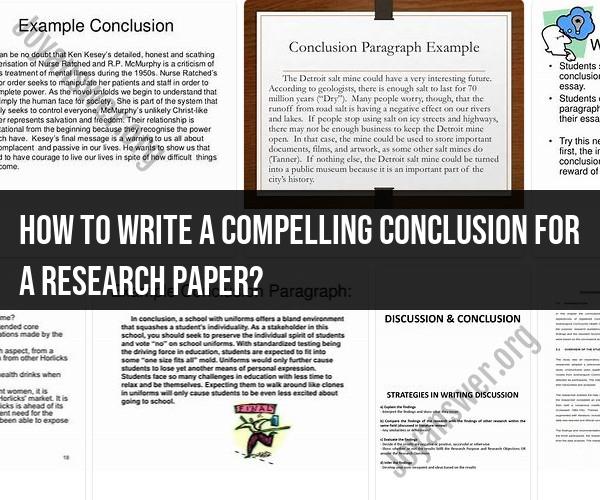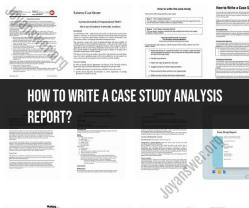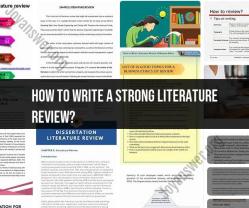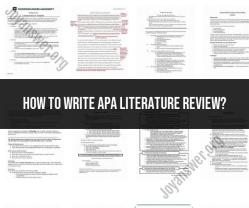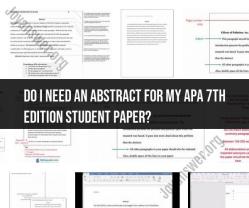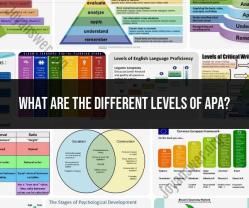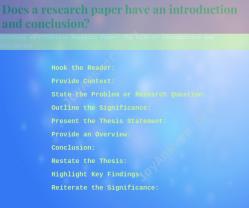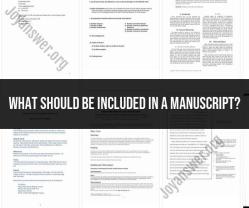How to write a compelling conclusion for a research paper?
Writing a compelling conclusion for a research paper is essential as it leaves a lasting impression on your readers. Here's a step-by-step guide to crafting an effective conclusion:
Summarize Key Points:
- Begin your conclusion by summarizing the main points and findings of your research. Restate your thesis statement and the primary arguments or findings you presented in your paper. However, avoid simply repeating what you've already said.
Reflect on the Significance:
- Discuss the significance of your research in the broader context. Explain why your findings or arguments are important and how they contribute to the field or topic you've studied. Highlight the "so what" factor to show your readers why they should care about your research.
Address the Research Question:
- Revisit the research question or problem statement you posed at the beginning of your paper. Explain how your research has provided answers, insights, or solutions to this question. Make it clear how your work has advanced our understanding of the topic.
Offer Implications:
- Discuss the implications of your research. Consider both the practical and theoretical implications. How might your findings be applied in real-world situations? What questions or areas of research do your findings raise for future scholars?
Provide Closure:
- Conclude your conclusion by providing closure to your readers. Sum up your paper's main message and leave your audience with a final thought or takeaway. This can be a call to action, a thought-provoking question, or a reflection on the broader significance of your research.
Avoid New Information:
- Your conclusion should not introduce new information or arguments. It should be a synthesis of what you've already discussed in your paper. Save any new ideas or questions for future research for the body of your paper or a separate section.
Maintain a Positive Tone:
- Keep a positive and forward-looking tone in your conclusion. Even if your research has uncovered challenges or limitations, frame them as opportunities for future work or areas for improvement rather than ending on a negative note.
Be Succinct:
- A conclusion should be concise and to the point. Avoid unnecessary repetition or verbosity. Make every word count to ensure your conclusion is impactful.
Revise and Proofread:
- Just like the rest of your paper, your conclusion should be well-written and free of errors. Carefully revise and proofread your conclusion to ensure clarity and coherence.
Read Aloud:
- After writing your conclusion, read it aloud to yourself. This can help you identify any awkward phrasing or issues with flow.
Remember that your conclusion is your final opportunity to leave a strong impression on your readers and reinforce the importance of your research. Make it clear, concise, and thought-provoking to ensure your research paper ends on a high note.
